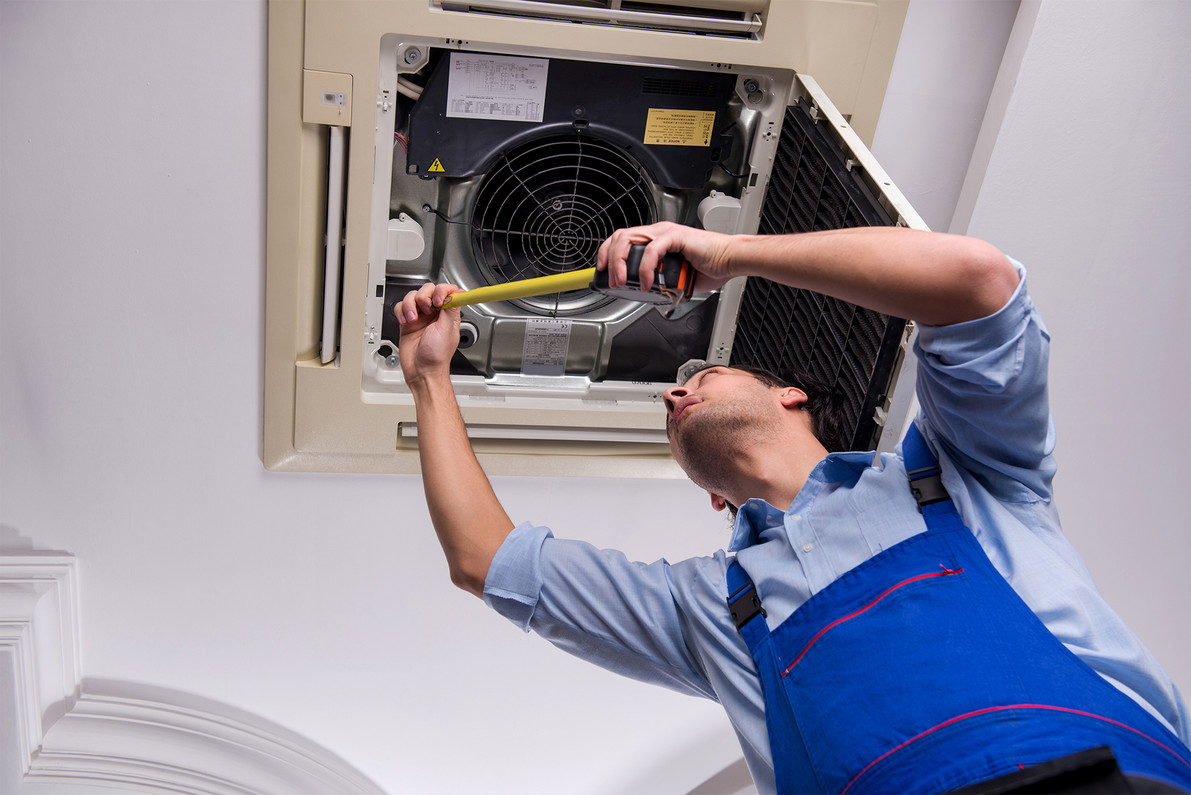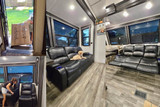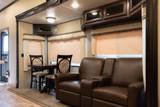What To Look For When Buying RV AC Units
There are a ton of benefits to installing an AC unit in your RV. Without one, you can end up living in a hot metal shell, sweating through your clothes while you wait anxiously for the sun to go down. This kind of heat can even affect your health and the health of your family and pets. Long story short: sleeping in a hot metal box isn’t a good idea. With an AC unit, though, you can avoid that scenario. But how do you find just the right one for your rig? Well, we’re here to help with that.
What Kind Of Unit Are You Needing?
There are a few different kinds of RV air conditioners, including rooftop AC units, portable AC units, and window AC units.
Rooftop RV AC units are great for saving space and are placed at strategic places in the RV to provide the best temperature control possible. They can be ducted or non-ducted and are cooled by the external air. Because of this, they can be affected by the outside temperature and weather. Oftentimes, these require more than one person for the installation and require wiring connections to be made. If you decide to add in a heat pump, it can be used year round and is a more energy efficient HVAC system.
A portable AC unit can also be called a “swamp cooler” and does not use a refrigeration process to cool the air. These take up more space, as you place it on your floor. They also require a hose to eliminate the water that leaks from the appliance. It can only be used in dry climates, rather than humid climates. They are also not the most energy efficient cooling system and tend to be noisy.
Window AC units are usually small and don’t take up too much space. They are quick and easy to install and tend not to be as noisy as other types. The drawbacks to these is that they still take up a little space in an RV, need to be stored away for the winter, and are not able to heat your space in the winter.
How Much Space Are You Looking To Cool?
Depending on the size of your room, you’ll have to look at the BTUs of the models. Here are some quick space estimated for the different AC BTU ratings: 5,000-7,000 BTUs are for 100-300 square feet of space; 8,000-12,000 BTUs are for 300-550 square feet of space; 14,000-18,000 BTUs are for 550-1,000 square feet of space. Knowing the amount of BTUs you’ll need will help you find the right model for your space. Make sure you are as close as possible to the BTUs you need, as not having enough will keep the unit from being as effective as you would want and having one with too many will cost more than you need. Keep in mind, though, that if you are traveling to a place that is humid and hot, you’ll want a unit with no less than 13,500 BTUs.
How Much Noise Do You Want To Tolerate?
If someone were to ask you “hey, how much noise can I make before you get annoyed?” you would probably already be annoyed. With many AC units, however, they don’t even ask the question before they drown out your conversation with their loud whining and whirring noises. That’s why it’s important to take a look at the decibel level of the AC unit you are checking out. The lower the number, the quieter it will be. The rule of thumb is to look for something under 60 decibels, which is about the sound of a breeze or low conversation. At this level, you can be comfortable while still being able to hear your TV or your family.
Energy Efficiency
Like any other appliance, taking the power consumption into consideration is important. After all, you don’t want to drain your power bank too quickly. Understanding power consumption is more than just how many watts and amps it uses. Air conditioners come with star rated energy efficiency ratings that are known as EER. These have been standardized by the Bureau of Energy Efficiency (BEE). The higher the better. You can also affect the energy efficiency by choosing a low profile model, as the lower shape creates less wind drag and this prevents the RV from being slowed down in severe weather and increases the fuel efficiency as well.
What Other Features Are You Wanting?
Do you just want a unit that keeps you cool or do you want a unit with dehumidifying features, air purification, self-cleaning features, or more? With different models come different features and these can make or break the model. For example, having a dehumidifying feature on your RV AC unit can help keep down moisture inside of your rig, preventing mold and mildew and keeping the air fresher and more comfortable, especially in the heat of the summer.
Now What?
Once you have the unit picked out and installed, you’ll need to keep it in good shape so that it will last you through a good many years. This includes not only using it properly, but also providing ample maintenance. A big part includes cleaning the filters often. Past this, you might have to clean the fan blade, the indoor and outdoor unit, or other tasks. While these might not be exciting and fun, they are vital to keeping your RV AC unit in good condition so that you can stay comfortable and content in your RV.
Recent Posts
-
Traveling to the RV Hall of Fame in Elkhart, IN
If you are traveling to Elkhart, IN to see the RV Hall of Fame, getting off the toll road at exit 96 …Nov 14, 2025 -
Best RV Air Conditioners of 2025: An Expert Guide From RecPro
Quick Answers Best overall RV air conditioner: RecPro 15K Quiet AC with Heat Pump (RP-AC3800) Best f …Oct 29, 2025 -
The Nuclear Nomads Expand Sofa with New Recliner Section Install
The Nuclear Nomads are a full time RV family living in south Florida. Andi and Joey value quality ti …Oct 24, 2025 -
Trailer Wiring Guide: How to Wire Your Trailer for Safety and Efficiency
Table of Contents 1. Common Types of Trailer Connectors 2. Trailer Wiring Diagrams: Color Codes and …Aug 20, 2024 -
How to Keep Your Pets Safe While Camping
RVing and camping are a great getaway from the hustle and bustle of work and the city and the day-to …Jul 02, 2024 -
Why Replace Your RV Furniture?
You may wonder when is the best time to replace your RV furniture. There is no one right answer to t …May 20, 2024







